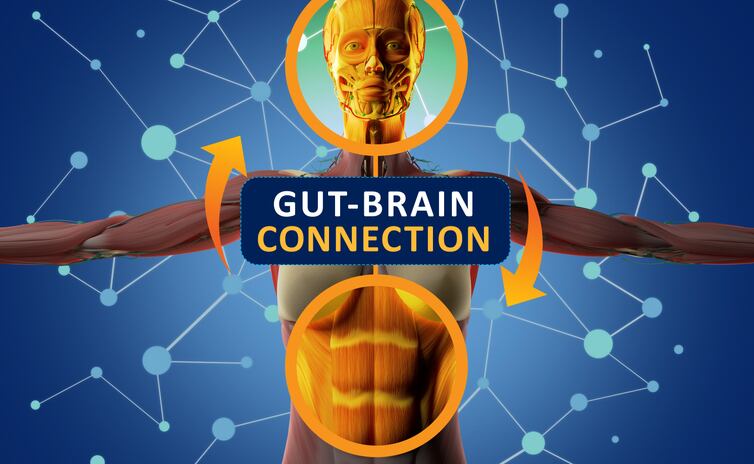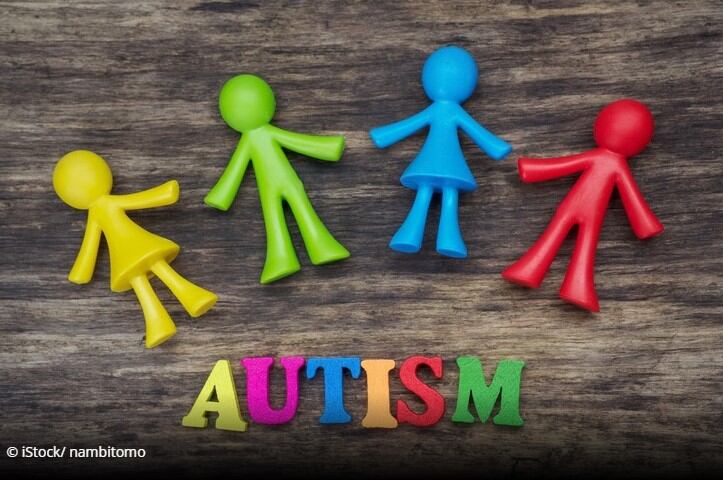Data published in Frontiers in Psychiatry indicated that a combination of Streptococcus, Bifidobacterium, and Lactobacillus called the De Simone Formulation could reduce scores on the Total Autism Diagnostic Observation Schedule (a measure of severity) in autistic children without gastrointestinal symptoms.
On the other hand, for autistic children with gastrointestinal (GI) symptoms, the probiotic was associated with improvements in some GI symptoms, adaptive functioning, and sensory profiles, compared to placebo.
“Our result suggests that ASD [Autism Spectrum Disorder] children with and without GI symptoms could represent two different populations and that probiotics interventions could potentially provide different effects, likely due to distinct microbiota targets,” wrote scientists from the IRCCS Stella Maris Foundation (Pisa), the National Research Council (Pisa), the University of Pisa, the Sapienza University of Rome, and the Department of Autism Research at the Villa Santa Maria Institute (Tavernerio).
The De Simone Formulation probiotic medical food is distributed in North America by Rockville, Maryland-based ExeGi Pharma under the brand name, Visbiome.
The study was funded by the Italian Ministry of Health, Tuscany Region, with additional funding from IRCCS Stella Maris Foundation and the University of Pisa. “There was no industry support except for providing probiotic and placebo,” stated the researchers.
‘A fascinating study’
Commenting independently on the study’s findings, Glenn Gibson, Professor of Food Microbiology and head of Food Microbial Sciences at the University of Reading in the UK, and a pioneer and world-renowned expert in prebiotics and probiotics, told NutraIngredients-USA: “This is a fascinating study adding yet more weight to the fact that the gut and brain 'talk' with one another. It is very interesting to see that probiotics helped in the absence of GI symptoms.
“Our own research has shown improved gut symptomology in ASDs with prebiotics. We keep learning more and more about how gut microbial health is central to many human clinical states and how outcomes may be better helped.”
Gut microbiome and ASD

Autism spectrum disorder (ASD) is a complex developmental condition with estimated prevalence in the United Stated of 16.8 per 1000 (one in 59) children aged eight years old, according to a review paper published in (Medicina, 2019, 55(5): 129, doi: 10.3390/medicina55050129).
The cause is unknown, but attention in recent years has begun to focus on the potential role of the gut microbiota.
Data shows that GI symptoms are higher in subjects with ASD compared to their “typically-developing” peers, and some studies have shown that ASD children do have dysbiosis and a change in the stability, diversity, composition and/or metabolism of the gut microbiota, compared to their typically-developing peers.
Moreover, other studies have reported that ASD subjects have disrupted intestinal permeability and evidence of a systemic and intestinal inflammation.
“Studies from ASD-like animal models demonstrated not only that the microbiota are essential for social development,” explained the Italy-based scientists in Frontiers in Psychiatry, “but also that restoring the normal components of gut microbiota with probiotics may correct the intestinal permeability defects, altered microbial composition, and ASD-related abnormalities though the reduction of gut production and absorption of toxins.”
Study details
To explore the potential of the De Simone Formulation in this population, the scientists recruited 85 preschoolers with ASD to participate in their double-blind randomized, placebo-controlled trial. The children were randomly assigned to receive either the probiotics (900 billion bacteria per day for the first month, followed by 450 billion per day for five months) or placebo for six months.
Data showed that, for the 63 children who completed the study, that there were no overall differences between the groups for the primary outcome measure, the Total Autism Diagnostic Observation Schedule - Calibrated Severity Score (ADOS-CSS).
Visbiome (De Simone Formulation) is available in the U.S. as a medical food for the dietary management of dysbiosis associated with IBS, ulcerative colitis, pouchitis and hepatic encephalopathy. The De Simone Formulation is sold under the name Vivomixx in Europe.
The formulation includes: Streptococcus thermophilus, Bifidobacterium breve, B. longum, B. infantis, Lactobacillus acidophilus, L. plantarum, L. para-casei, and L. delbrueckii subsp. bulgaricus.
However, when the researchers dug into the data in more detail and looked at secondary endpoints such as gastrointestinal symptom measures, they did find effects.
Specifically, children without GI symptoms had a statistically significant reduction in the Total ADOS-CSS score (mean reduction 0.81) and the Social-Affect ADOS-CSS score (mean reduction 1.14), compared to ASD children without GI symptoms receiving placebo.
“A mean reduction of 0.81 in Total ADOS CSS and of 1.14 in Social-Affect ADOS CSS over six months constitutes a clinically significant decrease of ASD symptoms,” stated the researchers.
In addition, children with GI symptoms, the probiotic intervention demonstrated statistically significant improvements (compared to placebo) on GI symptoms and core ASD behaviors such as adaptive functioning and multisensory processing.
Commenting on the potential mechanism(s) of action, the researchers hypothesized that the positive changes found in the children without GI symptoms may be a result of a complex interaction between gastrointestinal problems and adaptive functioning, which are tied to the serotonin system. Serotonin is a neurotransmitter that is primarily located in the GI tract and plays a key role in regulating mood and social behavior.
“[F]or the first time at our knowledge, we have observed in children without GI symptoms treated with probiotics significant modification of core ASD symptoms measured by the ADOS-CSS scores (specifically Social-Affect domain) that are unrelated to the specific intermediation of the probiotic effect on GI symptoms,” wrote the scientists.
“As far as children with GI symptoms, the six-month supplementation with DSF [De Simone Formulation] showed significant effects, when compared to placebo, in improving not only GI symptoms but also multisensory processing and adaptive functioning.”
Source: Frontiers in Psychiatry
25 September 2020, doi: 10.3389/fpsyt.2020.550593
“Effects of Probiotic Supplementation on Gastrointestinal, Sensory and Core Symptoms in Autism Spectrum Disorders: A Randomized Controlled Trial”
Authors: E. Santocchi et al.




